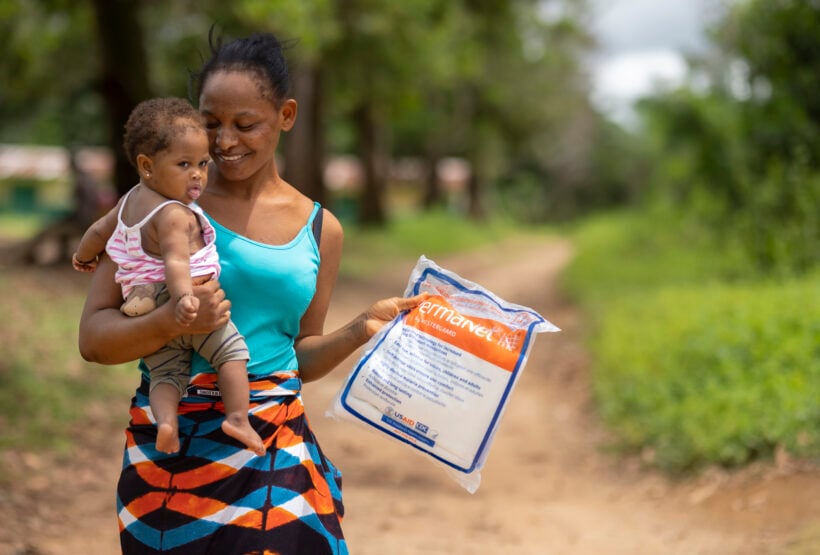
Authored by, Honourable Khumbize Kandodo Chiponda, MP, Minister of Health in Malawi and Dr. Michael Charles Adekunle Charles, CEO RBM Partnership to End Malaria
For years, concerted efforts by African nations, backed by international donors, have made remarkable strides in reducing malaria cases and deaths, bringing us closer to the goal of a malaria-free world. However, this hard-won progress is now at a tipping point, with new threats looming and insufficient funding. Without increased commitments from key stakeholders, our fight against malaria may falter, endangering millions.
As the next Global Fund replenishment round approaches, the need for support from G7 nations has never been more urgent. Countries such as Nigeria (accounting for 31% of malaria cases), the Democratic Republic of Congo (12%), Niger (6%), and Tanzania (4%), alongside Malawi which ranks among the top 15 countries most affected countries, are already severely impacted by this disease.
Currently, we face a funding gap of $1.5 billion just to maintain essential malaria services; without this, cases and deaths will inevitably rise. An additional $5.2 billion is needed annually to make meaningful progress towards the elimination of malaria. Beyond this, the wider health sector urgently needs $11 billion to adapt to the impacts of climate change. It is crucial that we act now to prevent further escalation, especially as the full extent of its potential impact is still unknown.
The recent report from the RBM Partnership to End Malaria, in collaboration with the Malaria Atlas Project, warns of dire consequences if funding declines. If current funding levels are simply maintained, Africa could see an additional 112 million malaria cases and up to 280,000 more deaths between 2027 and 2029.This projection is the likely result based on a “perfect storm” of challenges with implementing tools, rising biological threats, and a worsening climate.
Across the continent, countries such as Malawi already face the brunt of this disease. According to the 2023 World Malaria report, Malawi recorded an estimated 4,472,000 million cases in 2022. As we discuss scale of malaria cases, it’s clear that without substantial, predictable funding, the resurgence of malaria will disproportionately affect vulnerable groups, especially women and children, who are at the highest risk in our country. The toll on these groups is devasting, not just in terms of health but also through disrupted education and limitations on the caregivers’ ability to participate in the workforce. Beyond this, the broader economic impacts are severe, with malaria limiting productivity, driving up healthcare costs, and hindering growth – ultimately stalling Africa’s potential.
Over the last two decades, we have seen that great progress can be made in the fight against malaria, with sustained funding. However, the reality is that when resources dip, malaria resurges with devastating speed. Recent research findings have projected that if there is a cut to malaria funding, this could lead to an estimated 137.2 million additional malaria cases and up to 337,000 additional malaria deaths. Ultimately, robust and predictable funding is critical not only to sustain current interventions but to incorporate innovative tools such as advanced medicines, vaccines, and vector control strategies that could finally eliminate this disease.
While G7 pledges are essential, domestic financing in malaria-endemic countries also remains a critical pillar in the fight. We are proud that African nations have been demonstrating their resolve to combat malaria through significant increases in health funding, despite economic challenges. Zambia and Benin have made remarkable strides, for instance, boosting their health budgets by 174% and 140% respectively between 2021 and 2023. But national efforts can only go so far; 70% of malaria funding usually comes from external donors, highlighting the importance of sustained international backing to complement local efforts.
African nations today remain at the epicentre of the global malaria burden, with countries like Nigeria alone accounting for nearly half of all cases. However, the prevalence of malaria in these regions does not mean that it will always be contained. We can’t be complacent; if not, without immediate, decisive action, malaria could spread beyond Africa, potentially reaching new regions including Europe and spreading further in the USA.
Malaria is a solvable crisis. The progress we’ve made over the last two decades proves we have the tools and knowledge to eliminate this disease. As the Health Minister of Malawi, we urge the G7 nations to rise to this challenge. The path to a malaria-free world is clear, but only if we act now with resolve, commitment, and unity.

